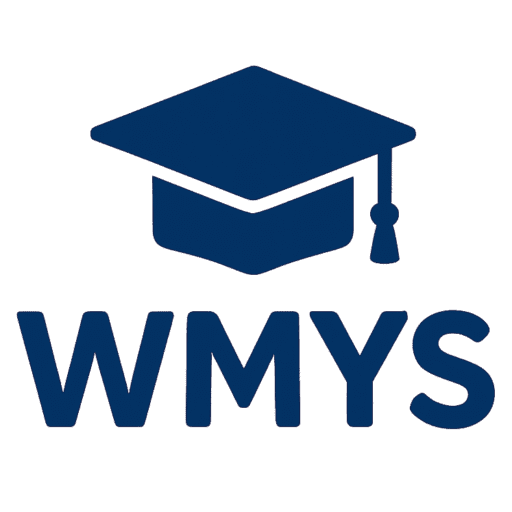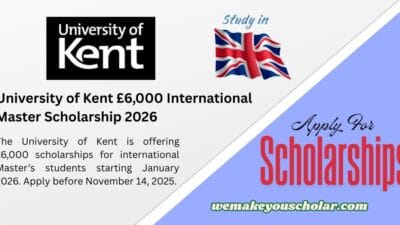UNDP Graduate Programme 2026/28 — Complete Guide for International Students (Fully Funded, Two-Year Assignments)
Short summary: The UNDP Graduate Programme 2026/28 is a fully funded, two-year entry pathway for recent graduates from UNDP programme countries who want to start a career in international development. This guide explains everything an international applicant needs to know — eligibility, what the placement covers, how applications are assessed, a step-by-step application guide, real graduate stories, interview prep tips, relocation and living advice, and five concise FAQs tailored for international students.
Why this programme matters — and why international students should apply
The UNDP Graduate Programme is more than a job: it’s an intensive professional formation pathway into the United Nations system. For international graduates, especially those from underrepresented regions, the scheme offers:
- Fully funded two-year international placements in country, regional, or HQ offices.
- Structured learning, mentorship, and on-the-job training (the “Formation Journey”).
- Hands-on experience on real development projects tied to the Sustainable Development Goals (SDGs).
- A rare entry point to the UN system that intentionally prioritizes diversity — youth, women, indigenous people, persons with disabilities, and first-generation university graduates are encouraged.
If you want to combine field experience with structured skills development and network with development professionals early in your career, this programme is among the best international launchpads available.
Overview: What the UNDP Graduate Programme offers
Launched in 2021, the programme has already attracted tens of thousands of applicants worldwide. Successful candidates are assigned for two years to UNDP offices and participate in a customized training pathway. Key components include:
- Two-year international assignment in a UNDP country, regional, or headquarters office.
- Streams: Programme & Policy or Corporate Operations.
- Formation Journey: tailored learning modules, mentoring, and peer learning.
- Professional exposure: working on project design, implementation, monitoring, and operational functions.
- Supportive package: salary/allowances, movement support, and policy guidance (details provided after selection).
Who can apply? Clear eligibility explained
Eligibility is strict but inclusive. Read these points carefully — many applicants are disqualified for not meeting one requirement.
Nationality
Applicants must be nationals of a UNDP programme country. Check UNDP’s list of programme countries on the official page — if your country is listed, you can apply.
Academic requirements
- Master’s degree (or equivalent) with a maximum of 1 year of relevant professional experience, OR
- Bachelor’s degree with a minimum of 2 years and a maximum of 3 years of relevant professional experience.
Relevant fields typically include international development, public policy, economics, social sciences, environmental sciences, human rights, data science, project management, communications, finance, and related disciplines.
Other essential conditions
- Age and experience window: the programme targets early-career graduates. Carefully check the experience caps.
- Language: Fluency in English (spoken and written) is mandatory. Working knowledge of French, Arabic, or Spanish is an asset and sometimes required depending on placement.
- Mobility: Willingness to relocate and live and work abroad for two years — some placements are in remote or developing contexts.
- Commitment: Strong interest in UNDP’s mission and the SDGs, systems thinking, and digital/innovation skills are emphasized.
Programme streams: Programme & Policy vs Corporate Operations
Understanding the two streams helps you tailor your application and choose roles that match your profile.
Programme & Policy
This stream focuses on substantive development work. Typical responsibilities include:
- Designing and supporting programme implementation (climate, governance, poverty reduction, gender equality, etc.).
- Data analysis, monitoring & evaluation, policy briefs, and stakeholder engagement.
- Research support, drafting reports, preparing donor briefs, and liaising with national partners.
Corporate Operations
This stream centers on the organizational functions that make programmes work. Tasks may include:
- Finance and budget support, procurement, and grants management.
- Human resources, IT systems, programme administration, or office operations.
- Risk management, compliance, and process improvements that ensure programme effectiveness.
What does the placement look like? Realistic day-to-day
Day-to-day life depends on duty station and stream, but typical activities include:
- Working with a supervisor on project tasks and deliverables — writing briefs, analysing data, or coordinating field visits.
- Participating in stakeholder meetings with government, NGOs, and donors.
- Joining training sessions under the Formation Journey curriculum and peer learning cohorts.
- Drafting monitoring reports, policy notes, or operations documentation.
Placements can be fast-paced and require adaptability. Expect to learn rapidly and take on responsibility early.
Compensation, benefits, and support — what to expect financially
UNDP provides a comprehensive package, but exact terms vary by duty station and contract type. Typical elements include:
Salary and allowances
Selected candidates are given contracted compensation reflective of UN entry-level pay scales appropriate for the duty station. This commonly includes:
- A base salary or stipend sufficient for local living costs.
- Movement and relocation support for travel to the duty station.
- Possibility of hardship or post adjustment in certain locations.
Insurance and benefits
- Medical and travel insurance covering the assignment period.
- Access to UNDP staff support services — security guidance, onboarding support, and HR policies.
Professional development
The Formation Journey provides formal learning opportunities — workshops, on-the-job learning, coaching, and access to UNDP training platforms.
Note: Always verify the contract terms in the offer letter — some items (e.g., housing, family support) depend on duty station rules and UNDP HR policy.
Selection process — how candidates are chosen
Selection is competitive and transparent. Typical stages include:
- Online application screening: Check for eligibility, completeness, and minimum requirements.
- Assessment of qualifications: Review of education, work experience, technical skills, and language ability.
- Competency-based interviews: Technical and behavioural interviews to assess fit, values, and potential.
- Reference checks: Professional or academic referees validate past performance.
- Placement matching: Candidates who pass selection are matched to duty stations based on skills, preferences, and organizational needs.
Panels give weight to candidate potential, motivation for development work, and the ability to adapt to cross-cultural environments.
Step-by-step application guide (what to prepare and how to submit)
Follow this roadmap to put together a strong application:
1. Read the official UNDP Graduate Programme page carefully
Start with the official recruitment page and FAQs. Note eligibility windows, document requirements, and the exact application portal link. (Official link is provided at the end of this article.)
2. Submit via the official portal
Apply via UNDP’s career portal before the deadline. Double-check all fields and upload PDFs only if required. Save copies of your final submissions.
3. Prepare referees
Referees should be able to speak to your professional potential — supervisors or academic advisors who can confirm your adaptability and contribution to teams.
How to craft a compelling motivation statement
Your motivation statement is critical. Use this structure:
- Hook: One sentence that summarises your motivation (e.g., “I want to join UNDP to apply my data science skills to climate resilience programming in coastal communities.”)
- Background: Briefly describe your academic and professional path and how it led to development work.
- Fit with UNDP: Explain how your skills match the selected stream and mention any relevant tools, languages, or methodologies you know.
- Impact: Conclude with what you aim to achieve during and after the programme (clear, realistic outcomes tied to SDGs).
Interview preparation — what to expect and sample questions
If shortlisted, you’ll likely face competency-based interviews (virtual). Focus on STAR answers (Situation, Task, Action, Result). Common themes:
- Teamwork and leadership under pressure.
- Problem solving and adaptability in complex contexts.
- Ethical dilemmas and respect for diversity.
- Technical questions related to your stream (project management, M&E, finance, data analysis, communications).
Sample question: “Describe a time you adapted a project plan when local conditions changed. What did you do and what was the outcome?” Aim for concise, evidence-based examples.
Placement matching — how duty stations are decided
After selection, UNDP attempts to match candidates with suitable duty stations. Factors include:
- Candidate skills and preferences.
- Organizational priorities and vacancies in regional/country offices.
- Security and logistic considerations for specific countries.
Flexibility increases your chance of placement. Being open to multiple regions or posting types (urban vs field) helps.
Career pathways after the Graduate Programme
The Graduate Programme is designed as a pipeline. Alumni frequently move into:
- Fixed-term or longer-term UNDP positions (national or international).
- Roles in other UN agencies, international NGOs, or multilateral development banks.
- Policy, advisory, or research roles in government or think tanks.
- Private sector roles in sustainability, CSR, or development consultancy.
Success depends on performance during the assignment, networking, continuing professional development, and the ability to demonstrate impact in programme reports and learning portfolios.
Graduate success stories — six short profiles (what they did and what they gained)
These condensed stories reflect typical trajectories and concrete wins that illustrate the programme’s value:
Sylvie — Policy & Advocacy
Sylvie joined with a Master’s in Public Policy and was placed in a Pacific island country focusing on climate resilience policy. She helped design an M&E framework for coastal adaptation projects and now leads a national policy unit collaborating with regional partners.
Mohammed — Programme Implementation
With a background in project management, Mohammed improved donor reporting systems in his country office, leading to an increase in transparency and a new donor partnership that expanded youth employment programmes.
Gcinile — Monitoring & Data
Gcinile applied data analytics skills to programmatic datasets, enabling regional teams to target funding more effectively. Their analysis fed into national poverty-reduction planning.
Charya — Communications & Outreach
Charya led a digital storytelling campaign that increased community engagement and helped secure additional local funding for an education project.
These profiles show how different backgrounds can fit and thrive in the programme — what matters most is impact and learning.
Application timeline & planning checklist
Plan at least two months before submission:
- Check official UNDP page for campaign dates and portal opening.
- Update CV and draft motivation statement (get feedback).
- Request references early — give referees context and deadlines.
- Prepare translations of documents if necessary.
- Submit before the portal deadline; save confirmation emails.
Comparison: UNDP Graduate Programme vs other UN entry pathways
Quick comparison to help you choose:
- UNDP Graduate Programme: Two-year, fully funded placements with structured training — best for immediate field experience.
- UN Young Professionals Programme (YPP): Competitive exam leading to long-term professional posts — suitable for candidates aiming for a career track within the UN.
- UN internships: Shorter, often unpaid or modestly paid, and more flexible — useful for gaining experience before applying to graduate or professional programmes.
Practical relocation considerations (visas, housing, taxation)
Important points to investigate once you get an offer:
- Visa requirements: UNDP will provide guidance, but you must prepare documents (medical, police checks, etc.).
- Housing: Initial accommodation may be arranged; clarify whether allowances cover deposits.
- Banking & taxation: Understand whether your salary is subject to local taxes or UN exemptions based on duty station rules.
How to stand out in a crowd — final application tips
- Be precise: use numbers and outcomes to describe your achievements.
- Show learning agility: UN work changes quickly; give examples of rapid learning and adaptation.
- Emphasize systems thinking: show you can link interventions to broader development goals (SDGs).
- Demonstrate soft skills: teamwork, communication, respect for diversity matter as much as technical skills.
- Prepare to explain tradeoffs and constraints: UN work usually has limited resources — show pragmatic problem-solving.
Internal link
- See also: Cornell’s Milton L. Barnett Scholarship 2026 | Malaysian Studies Funding
- See also: University of Strathclyde Glasgow 850 International Masters Scholarships 2025
- See also: DAAD & KAAD Fully Funded Masters in International Health
5 Key FAQs (short, clear answers)
1. Who is eligible to apply?
Graduates from UNDP programme countries. You must hold a Master’s (≤1 year relevant experience) or a Bachelor’s (2–3 years relevant experience). Fluency in English and willingness to relocate for two years are required.
2. Is the programme fully funded and are placements paid?
Yes — the programme provides fully funded two-year assignments that include salary/allowances, insurance, and relocation support. Exact entitlements vary by duty station and contract details provided at offer stage.
3. What are the two main streams and which should I choose?
Programme & Policy (project and policy work) and Corporate Operations (HR, finance, IT, operations). Choose based on your skills and interests; highlight relevant examples in your application.
4. How competitive is it and what improves my chances?
Very competitive — tens of thousands of applicants. Improve your chances by crafting a targeted motivation letter, using strong referees, demonstrating measurable impact in past roles, and showing flexibility on placement locations.
5. When will the next recruitment campaign run and where do I apply?
UNDP posts recruitment campaign details on its careers page. The next campaign is in progress — monitor the official UNDP Graduate Programme page for application windows and official guidance.
Conclusion — Is this the right step for you?
The UNDP Graduate Programme 2026/28 is ideal if you want a structured, well-supported entry into international development. It suits graduates who are adaptable, mission-driven, and ready to learn on the job. For international students from UNDP programme countries, it offers a rare chance to combine field experience, mentorship, and professional development at scale. If you’re passionate about the SDGs and ready to commit to two years of international service, prepare a sharp, impact-oriented application — and consider this life-changing career starting point.
Official UNDP link (apply & learn more)
Apply and find official, up-to-date details here: UNDP Graduate Programme — Official Page




